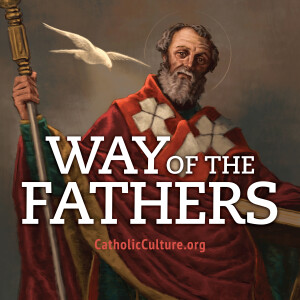
3.10 Cities of God: Constantinople (Not Istanbul)
 2023-09-13
2023-09-13
In a short span of time, in the fourth century, Byzantium made the leap from a relatively insignificant harbor city to the de facto capital of the world. Constantine moved there from Rome and gave his empire a new (and Christian) founding. He also laid the foundations for a political milieu that made “Byzantine” a byword meaning complicated, bureaucratic, and corrupt. Constantinople’s laws, for better and worse, circumscribed the movements and actions of many of the later Fathers.
Links
Eusebius, Life of Constantine 3.54 https://www.catholicculture.org/culture/library/fathers/view.cfm?recnum=2881
Socrates Scholasticus, The Ecclesiastical History 1.16 https://www.catholicculture.org/culture/library/fathers/view.cfm?recnum=2884
John Julius Norwich, A Short History of Byzantium https://www.amazon.com/Short-History-Byzantium-Julius-Norwich/dp/0679772693/
Thomas Madden, Istanbul: City of Majesty at the Crossroads of the World https://www.amazon.com/Istanbul-City-Majesty-Crossroads-World/dp/0670016608
They Might Be Giants, “Istanbul (Not Constantinople)” https://youtu.be/0XlO39kCQ-8?si=MvE92tpEJcFeYDlx
Mike Aquilina’s website https://fathersofthechurch.com/
Mike Aquilina’s books https://catholicbooksdirect.com/writer/mike-aquilina/
Theme music: Gaudeamus (Introit for the Feast of All Saints), sung by Jeff Ostrowski. Courtesy of Corpus Christi Watershed http://www.ccwatershed.org/
Please donate to this podcast: http://www.CatholicCulture.org/donate/audio/
More Episodes
 2021-08-04
2021-08-04
 2021-07-14
2021-07-14
 2021-04-28
2021-04-28
 2021-04-14
2021-04-14
 2021-03-25
2021-03-25
 2021-02-24
2021-02-24
 2021-01-27
2021-01-27
 2021-01-12
2021-01-12
 2020-11-24
2020-11-24
Create your
podcast in
minutes
- Full-featured podcast site
- Unlimited storage and bandwidth
- Comprehensive podcast stats
- Distribute to Apple Podcasts, Spotify, and more
- Make money with your podcast
It is Free
- Privacy Policy
- Cookie Policy
- Terms of Use
- Consent Preferences
- Copyright © 2015-2024 Podbean.com




